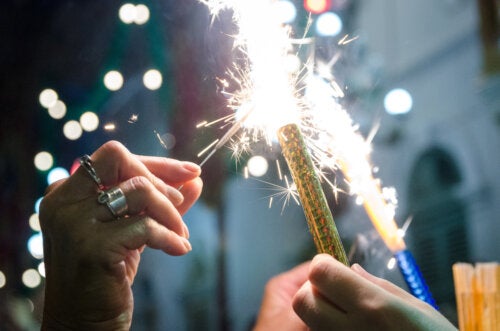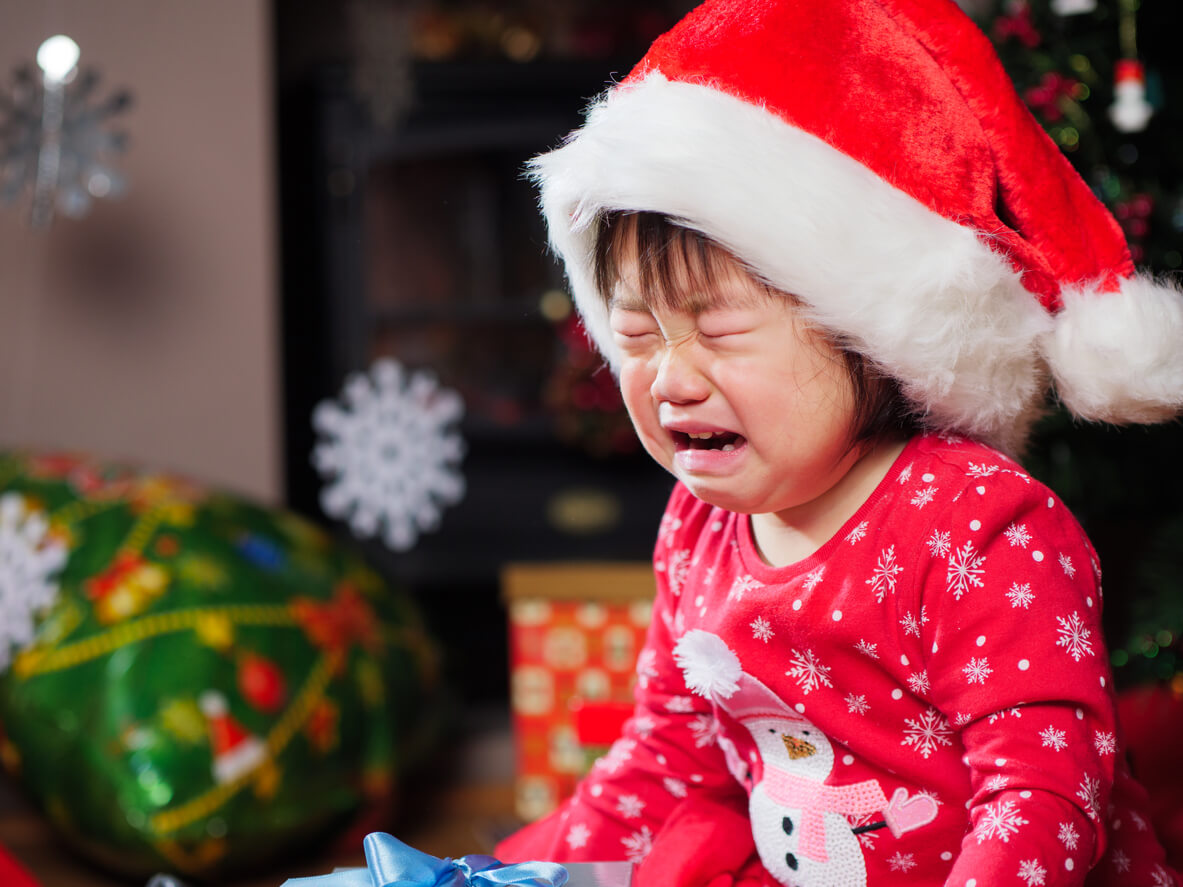What to Do if Your Child's Afraid of Fireworks

It’s quite common for children to be afraid of fireworks. During the summer and also on New Year’s Eve, fireworks displays take center stage in many cities. Despite the fact that nowadays there’s more awareness about the dangers of fireworks, certain celebrations tend to involve intense stimuli: Loud noises, flashy lights, high-decibel music, and crowds of people. Keep reading to find out how to help your little one when the environment becomes deafening.
This scenario is often perceived by children as an explosive combo that ends up being a significant source of stress and anxiety. While there are many children who enjoy this exciting context, others have a really hard time. Is your child afraid of fireworks?
Children’s fears
Childhood fears are healthy, in that they prepare children to deal with situations that involve a real or imagined threat. That’s what fear does, which is one of the six basic emotions: It warns us of danger and produces protective responses. However, sometimes fear can become dysfunctional when it’s irrational or disproportionate to the stimulus that provokes it and when it doesn’t lead us to respond adaptively.
The most frequent fears during childhood are the following:
- Fear of the dark
- Certain animals
- Unfamiliar people
- Going to the doctor or the dentist
- Monsters or costumes
- Loud noises, such as thunderstorms or fireworks

Fear of fireworks
There are children who panic when they notice the presence of noisy pyrotechnics. The surprise factor has a brutal impact on the stability of little ones, and it this then when cortisol and adrenaline, hormones associated with stress, possibly shoot up with intensity. When a child’s afraid of fireworks and experiences panic in their presence, we call it ligirophobia.
How to accompany children who are afraid of fireworks
If you have a little one who’s afraid of fireworks, we’ll tell you how to accompany them during summer and end-of-the-year festivities so that they can get through them as calmly as possible.
1. Anticipate the context
The first thing we should do to mitigate the fear of the rumblings is, a few days before, explain to them what will most likely happen during the coming days. For example, we can tell them that people will celebrate the beginning of a new year or the fourth of July by lighting firecrackers that make a lot of noise and make colorful figures in the sky. At the same time, it’s a good idea to show them pictures and videos of fireworks shows and tell them that in a few days, something very similar will happen.
This way, your child won’t be surprised by the presence of fireworks on holiday evenings. On the contrary, they’ll expect them to appear, so they can prepare themself to live with them.
2. Remain calm
However, anticipating the strident context doesn’t guarantee that your child won’t be afraid of the first bursts. In fact, if it has happened to them in previous years, it’s possible that this time around, they’ll feel some fear or discomfort. For this reason, it’s essential that the adults who accompany your child are able to remain calm, even when they see them nervous.
Making sudden movements, grabbing your child’s arms quickly, and talking to them in a very high tone of voice will intensify their anxious state because they’ll believe that they’re really in danger. At the same time, if you speak softly and convey reassurance through your body language, they’re more likely to feel safe. That way, they’re more likely to be able to reduce their stress.
3. Don’t feed their fear, but don’t invalidate it either.
It’s essential to find the middle ground between feeding their fear and ridiculing him. That is, it’s important to make sure that you do neither. While it’s true that the use of fireworks can be very dangerous for children, taking the necessary preventive measures to take care of them will suffice. Overprotection won’t help to mitigate their fear, but rather, will intensify it.
However, it’s also important to respect and validate their feelings. Let them know that you understand their fear, as it’s true that the noise is very loud and can be frightening. Also, you can take advantage of this moment to tell them about a fear you had as a child or that you currently have and explain how you overcome it.

4. Exposure should be progressive
Another fundamental point is that the exposure to the noise should be progressive. A few days before, you can ask them what scares them or what they like about fireworks. Once the day has arrived, they can watch them from afar or through the window. Then, they can go outside to hear and see them more clearly.
5. Allow your child to find their safe place
It’s important to allow your child to move freely, according to their needs, as long as they’re not going to a dangerous place. The essential thing is that they don’t feel obliged to stay in a place where they don’t feel comfortable.
Perhaps they need to be close to you, they feel safe behind the couch, or they’re calmer in the bathroom. In this case, it is not advisable to forbid him to stay there, because what he is doing is looking for a safe place for him. However, you can help him to get out of there little by little, as long as you respect his time and emotions.
Just because your child’s fear persists this year doesn’t mean that you have failed
Keep in mind that childhood fears aren’t easy to overcome, as there are many variables that come into play. You don’t have to set a strict and rigid goal that this year your child won’t be frightened by the presence of fireworks. It won’t help if you overexert yourself. As a mother, you’ll do everything in your power to make sure your little one has the best possible holiday season, but it’s not all up to you.
From a broad and flexible perspective, you can take these recommendations as a guide to help your child overcome their fear. It will be a challenge for both you and your child and, year by year, they’ll learn to cope.
All cited sources were thoroughly reviewed by our team to ensure their quality, reliability, currency, and validity. The bibliography of this article was considered reliable and of academic or scientific accuracy.
- Borcha Grijalba, M., López Siverio, E. (2009). Miedos infantiles. La Gaveta : revista digital del CEP de Santa Cruz de Tenerife. 2009, n. 15, marzo ; p. 54-56
- Bourne, E. y Garano, L. (2012). Haga frente a la ansiedad: 10 formas sencillas de aliviar la ansiedad, los miedos y las preocupaciones. Barcelona: Amat.
- González Martínez, M.T. (1990). Los miedos en el niño. Aspectos teóricos y un estudio directo. Ediciones Universidad de Salamanca, España.